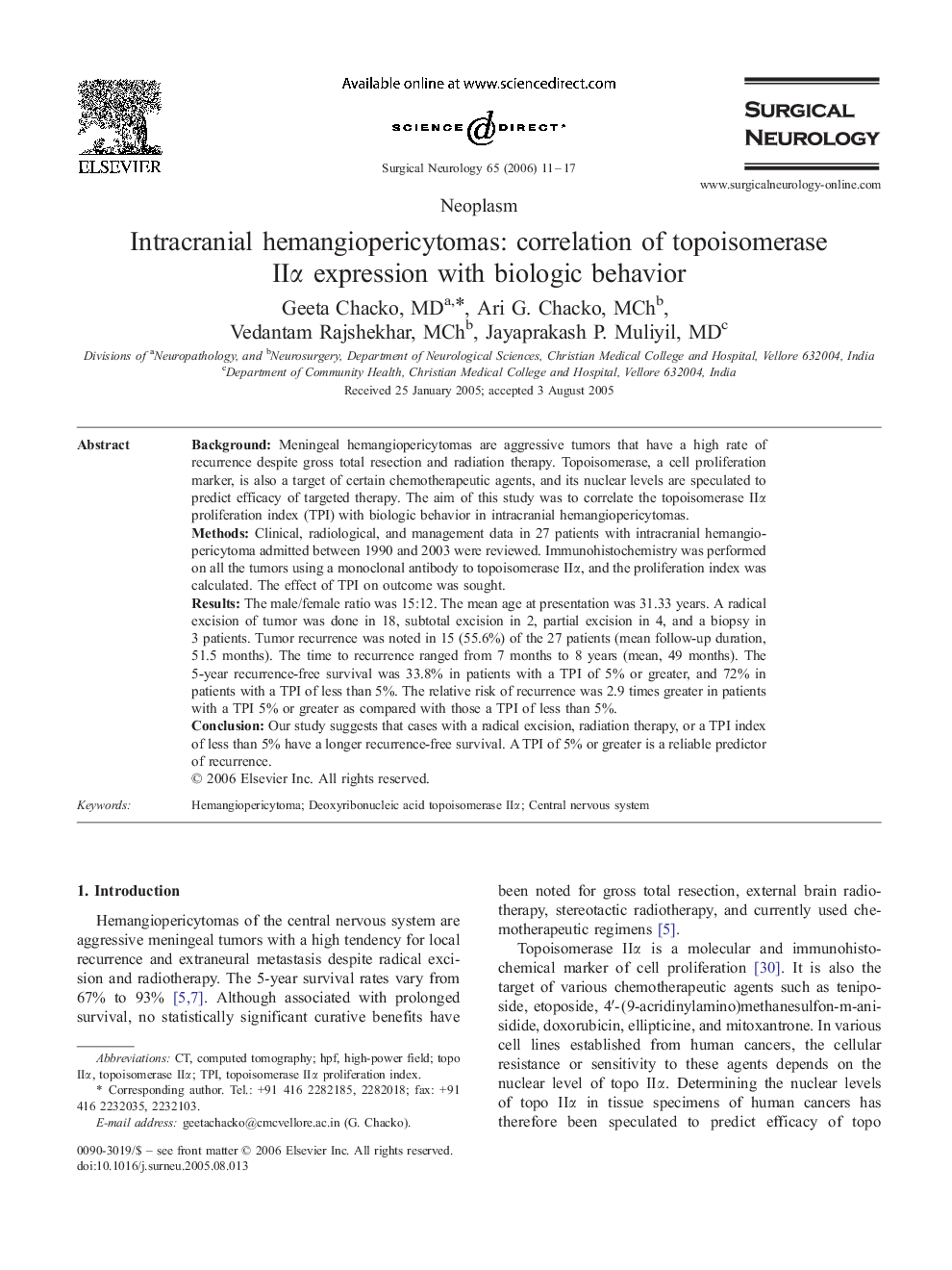| Article ID | Journal | Published Year | Pages | File Type |
|---|---|---|---|---|
| 3094342 | Surgical Neurology | 2006 | 7 Pages |
BackgroundMeningeal hemangiopericytomas are aggressive tumors that have a high rate of recurrence despite gross total resection and radiation therapy. Topoisomerase, a cell proliferation marker, is also a target of certain chemotherapeutic agents, and its nuclear levels are speculated to predict efficacy of targeted therapy. The aim of this study was to correlate the topoisomerase IIα proliferation index (TPI) with biologic behavior in intracranial hemangiopericytomas.MethodsClinical, radiological, and management data in 27 patients with intracranial hemangiopericytoma admitted between 1990 and 2003 were reviewed. Immunohistochemistry was performed on all the tumors using a monoclonal antibody to topoisomerase IIα, and the proliferation index was calculated. The effect of TPI on outcome was sought.ResultsThe male/female ratio was 15:12. The mean age at presentation was 31.33 years. A radical excision of tumor was done in 18, subtotal excision in 2, partial excision in 4, and a biopsy in 3 patients. Tumor recurrence was noted in 15 (55.6%) of the 27 patients (mean follow-up duration, 51.5 months). The time to recurrence ranged from 7 months to 8 years (mean, 49 months). The 5-year recurrence-free survival was 33.8% in patients with a TPI of 5% or greater, and 72% in patients with a TPI of less than 5%. The relative risk of recurrence was 2.9 times greater in patients with a TPI 5% or greater as compared with those a TPI of less than 5%.ConclusionOur study suggests that cases with a radical excision, radiation therapy, or a TPI index of less than 5% have a longer recurrence-free survival. A TPI of 5% or greater is a reliable predictor of recurrence
